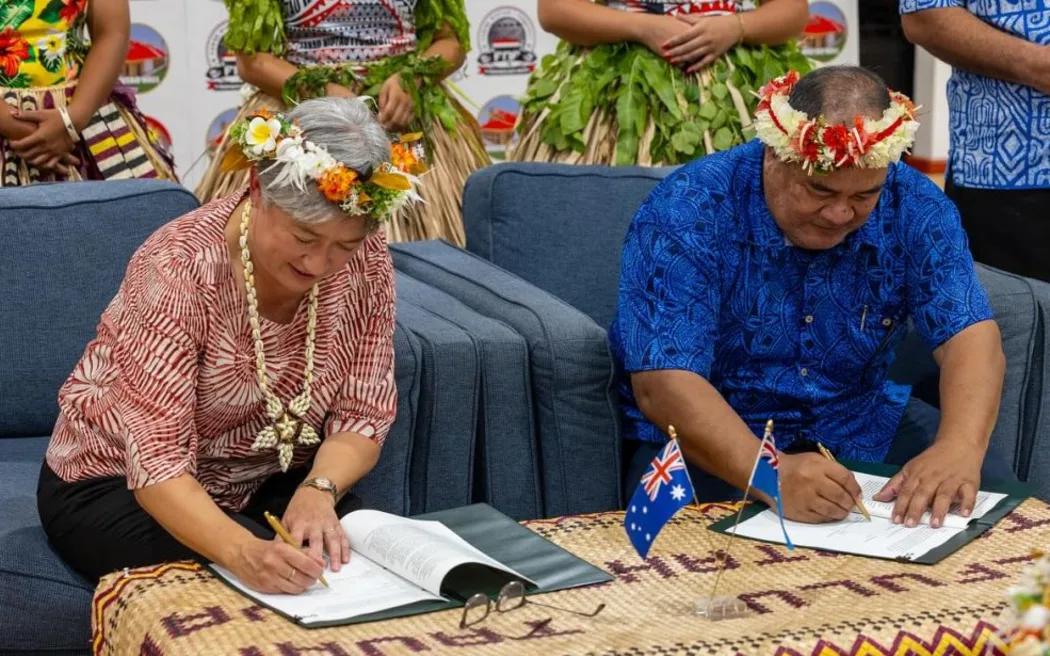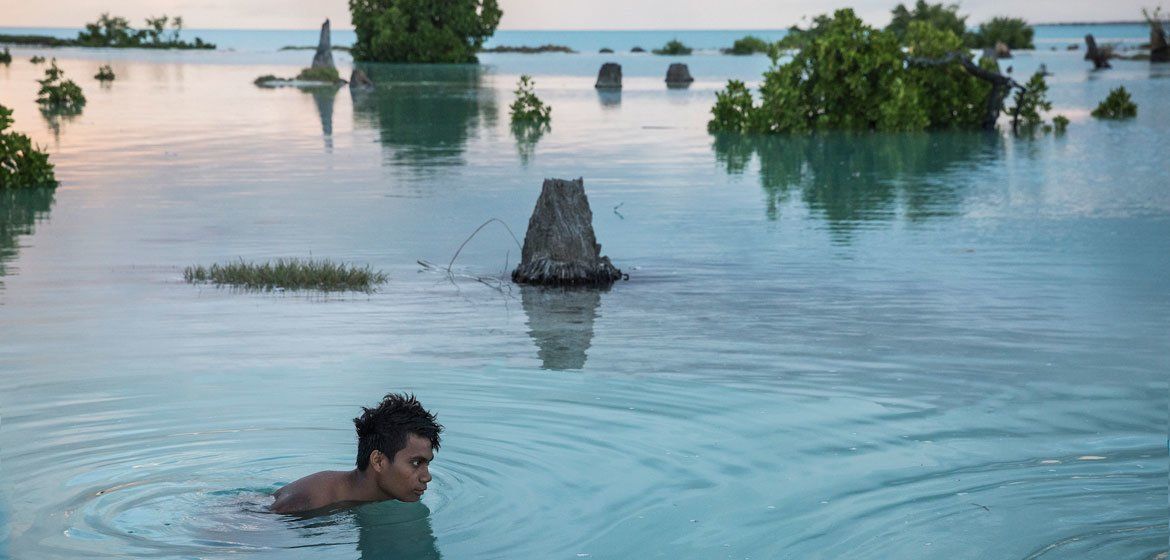

Funafuti, Tuvalu. The UN has classified the low-lying South Pacific island nation as ‘extremely vulnerable’ to climate change. Photo/BBC
Tuvalu wants deadline set to end fossil fuels
Despite ratifying the Falepili Union Treaty with Australia in Tonga last week, Tuvalu’s government warns of unimaginable climate catastrophe due to sea level rises.


Moana Pasifika end Lautoka curse to win 'Battle of the Pacific'


A.R.T sets new Pacific music pace with ‘First Thursday’ releases


Moana Pasifika end Lautoka curse to win 'Battle of the Pacific'


A.R.T sets new Pacific music pace with ‘First Thursday’ releases
A day after ratifying the Falepili Union Treaty with Australia, Tuvalu’s government says the root cause of climate change must be addressed.
This came as the Pacific Islands Forum Leaders Meeting in Tonga ended last Friday. The Falepili agreement, signed on 9 November 2023, was ratified last Wednesday by Tuvalu Prime Minister Feleti Teo and his Australian counterpart, Anthony Albanese.
Tuvalu’s Climate Minister Maina Talia told a group of journalists in Nuku’alofa that “opening, subsidising, and exporting fossil fuels is immoral and unacceptable”.
Talia joined other leaders to call on Albanese, who was also at the Tonga summit, to set a deadline to end fossil fuels. “Fossil fuels are killing us,” Talia said. “If we aim for regional prosperity then we must address climate justice, sea level rise, and fossil fuels, the root cause of climate change.”
Albanese has defended Australia’s “transition plans” saying the Falepili Treaty recognised that Tuvalu was vulnerable to sea level rise and both countries were committed to working together amid the existential threat posed by the climate crisis.
Despite his hot-mic moment with United States' deputy secretary of state, Kurt Campbell at the forum, Albanese said, “This has been an extremely successful Pacific Islands Forum meeting up to this point.
“There are three achievements I think will come out of this Forum as far as Australia is concerned.”
Albanese was referring to his government-funded joint policing plan which the leaders endorsed. The Australian prime minister arrived in Tonga with three things on his mind: increased support for Tonga, the Falepili Union Treaty with Tuvalu, and the Pacific Policing Initiative (PPI).
Albanese said he recognised the significant impacts of natural disasters in Tonga with the most recent earthquakes striking the nation earlier in the week. “Here for our host Tonga, we have increased support, including support from New Zealand for the construction of a new parliament, as well as undersea cables that we know are so important.

Australian Foreign Minister Penny Wong and Tuvalu Foreign Minister Paulson Panapa sign the Falepili Union explanatory memorandum in May 2024. Photo: X/SenatorWong
“The quake that occurred here in the last week has reminded us as well of how vulnerable communications is here, which is why I'm having undersea cables, a second cable, to ensure that there's stability of communications here in Tonga as well,” he said.
Albanese said he was happy with the leaders’ support for the policing initiative, adding that the region-wide plan involved the establishment of four training centres across the Pacific with a hub in Brisbane.
The A$400 million (NZ$271m) proposal includes a multi-country policing force of about 200 officers to be deployed across the region in the event of major events or crises.
“I’m very grateful this proposal has been adopted. The police leaders and commissioners from around the Pacific have been meeting on this for a year," Albanese said. “It has three parts to it that are really important. This is about the Pacific family looking after our own security.

Photo/UNICEF
“It won’t replace the number of bilaterals that we have between our respective police forces, in Papua New Guinea and in the Solomon Islands. But what it will do is make sure that there’s better coordination, that there’s interoperability.
"This will lift security throughout the Pacific given that so much of security and policing issues in today’s modern world is transnational. Be it everything from cybercrime to drug importation even the human trafficking that tragically still continues to occur around the world. This will make an enormous difference.
“This doesn’t overrule the national sovereignty of national police forces that continue to operate. What it does though is make sure that it gets better coordination and that is why it was welcomed so warmly during the plenary session yesterday and confirmed that in the draft,” Albanese said.